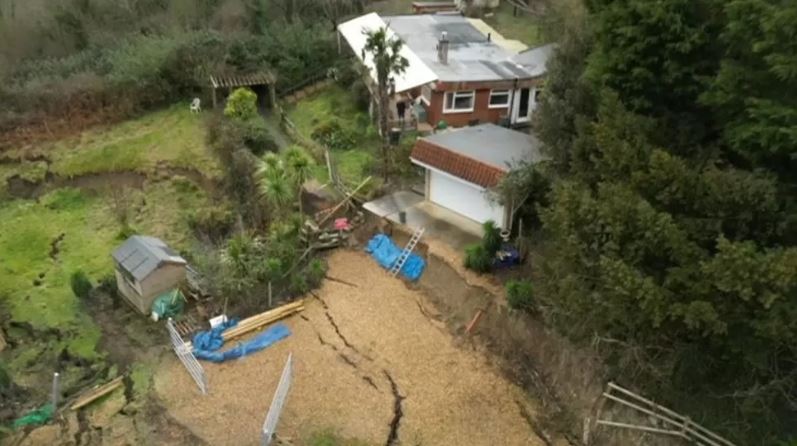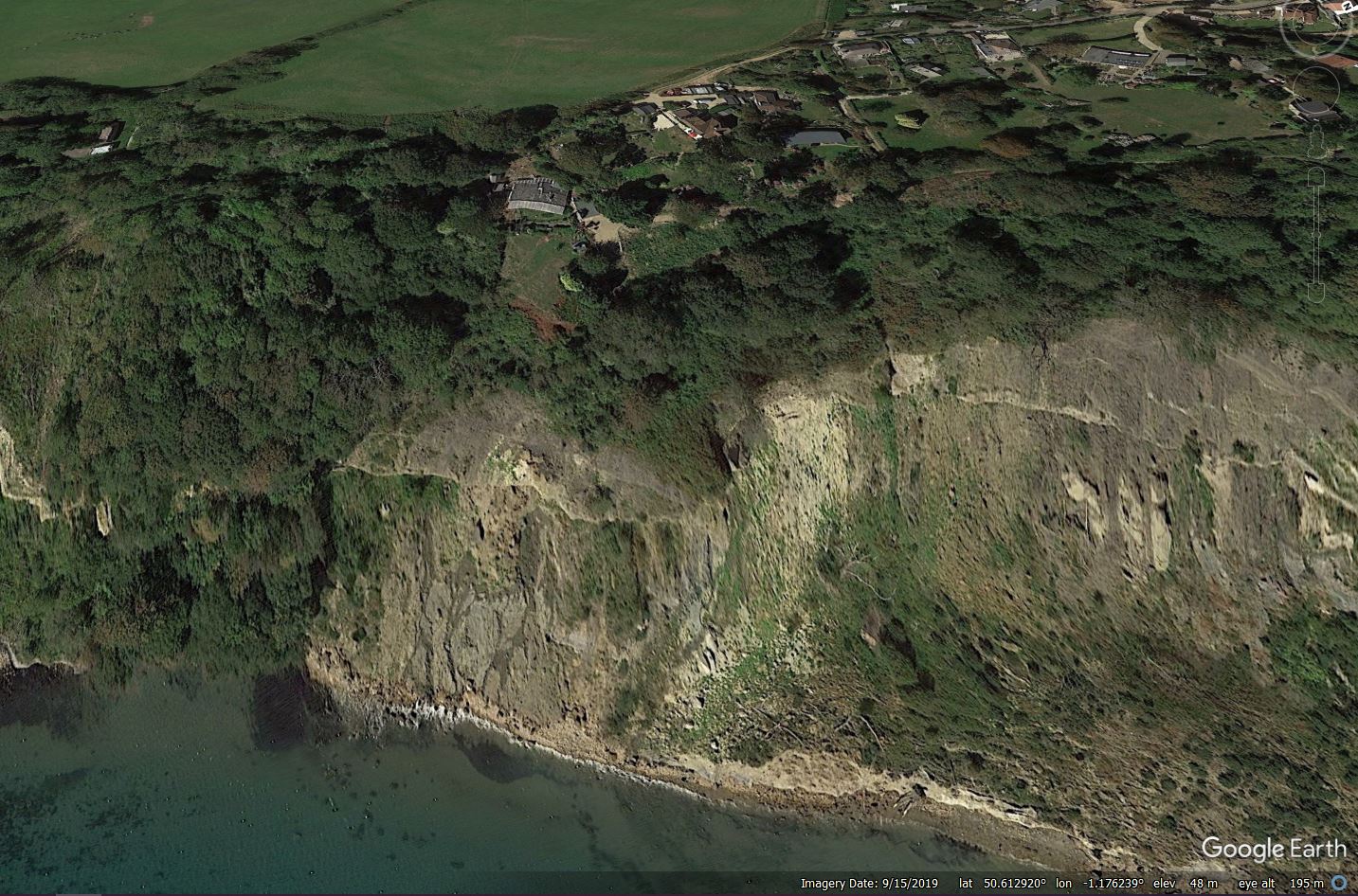6 March 2023
Luccombe: the individual impact of coastal landslides
Posted by Dave Petley
Luccombe: the individual impact of coastal landslides
The BBC has recently featured a story on its news website about the development of a landslide in the coastal community of Luccombe on the Isle of Wight, in the south of England. This is an area that is notorious for coastal failures, and there is some good information online about the causes and impacts of the failures.
The BBC story features George Gardiner, an elderly resident whose house is being affected by the rearward propagation of a landslide. The article includes this image of the house and the development of a new set of tension cracks and scarps:-

The tension cracks and scarps near to a house in Luccombe on the Isle of Wight. Image from the BBC.
.
The location of the house is, I believe [50.613, -1.177]. This is a Google Earth image of the site, collected in 2019:-

Google Earth image of the site of the landslide at Luccombe on the Isle of Wight.
.
The Isle of Wight County Press also has a gallery of images of the site, collected in January, showing the development of the scarps. It is clear that the situation has deteriorated considerably in the two months since then. There is also a more recent article published by On the Wight about the problems.
This case highlights one of the very serious challenges facing those managing landslides. Mr Gardiner wishes to be able to stay in his home, which is completely understandable. There is a strong line of argument that he should be able to do so if he is aware of the risks and is willing to accept them. However, the counter argument is that the behaviour of the slope is unpredictable and the situation could deteriorate quickly. If so, Mt Gardiner could require emergency assistance, possibly in very poor weather. This would place the lives of the fire and rescue workers, and the police, at high risk too. The recent case in New Zealand, in which two volunteer fire and rescue staff were killed, highlights the potential consequences.
In the case of Luccombe, the authorities need to balance the risks. This is not straightforward.


 Dave Petley is the Vice-Chancellor of the University of Hull in the United Kingdom. His blog provides commentary and analysis of landslide events occurring worldwide, including the landslides themselves, latest research, and conferences and meetings.
Dave Petley is the Vice-Chancellor of the University of Hull in the United Kingdom. His blog provides commentary and analysis of landslide events occurring worldwide, including the landslides themselves, latest research, and conferences and meetings.
This is not the first time problems have occurred at Luccombe. If anyone is interested check out:
R. Moore, Lee E M and F. Longman. 1991. The impact, causes and management of landsliding at Luccombe Village, Isle of Wight. In R. J. Chandler (ed.) Slope Stability Engineering, developments and applications, 225 230.
It summarises the findings of a DoE study undertaken in the late 1980s. Of interest, Francis Longman was a local resident who was what would be called today an ‘activist’ in trying to find a solution to the problems.